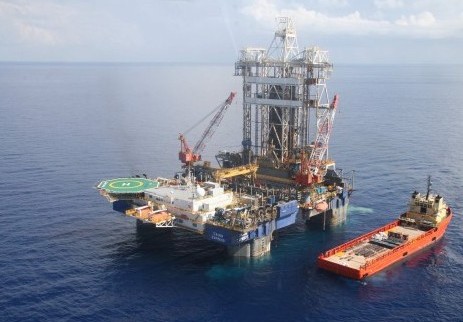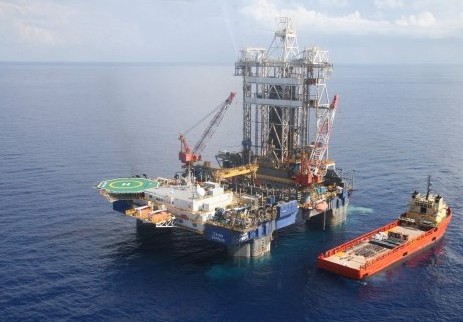 In the best of times, the three states most directly affected by the Gulf oil disaster have pretty fragile economies. Louisiana, Alabama, and Mississippi all rank among the bottom ten U.S. states in per-capita income.
In the best of times, the three states most directly affected by the Gulf oil disaster have pretty fragile economies. Louisiana, Alabama, and Mississippi all rank among the bottom ten U.S. states in per-capita income.
Obviously, the ever-growing oil spill isn’t just wreaking ecological havoc. It also threatens severe economic damage. The commercial fishing and tourism industries, two linchpins of the regional economy, are obvious potential casualties. The third is the very industry that brought on the mess in the first place: deepwater oil drilling.
If you live near the Gulf, you don’t have to be an oil-stained pol like Sen. Mary Landrieu (D.-La.) to lament President Obama’a temporary moratorium on deepwater drilling. A broad swath of the citizenry is deeply worried, too.
Reporting from the Gulf for Earth Island Journal, Jason Mark talked to a range of people — from shrimp-packing and luxury-tourism magnates to shrimp-boat operators — who oppose the deepwater drilling ban. Clarice Friloux, a Native American activist, has battled the oil industry for polluting tribal lands and works part-time on a shrimp boat. But none of that makes her a supporter of the ban. “As much as I don’t like their byproducts and how they dispose of them,” she tells Mark, “I would hate to see drilling be stopped in the Gulf because of families losing their jobs just like the shrimpers are.”
It’s no wonder that rank-and-file coastal Gulf residents, as outraged by the BP calamity as they are, nevertheless support the industry. When work is hard to come by, it’s distressing to fathom the disappearance of a longtime source of jobs.
More than a month ago, I argued that any offshore drilling moratorium must be accompanied by a commitment to conserve oil. I meant that if we ban offshore drilling without slashing our oil appetite, we’ll only be importing more oil from far-flung places, and shifting the risk of disaster onto them. (We’ll also need to push for a global carbon deal — otherwise our own reduced consumption will lead to lower market prices — meaning people elsewhere will likewise increase their consumption. Sigh. So much to do.)
In addition to conservation, any drilling ban has to be accompanied by a serious effort to diversify the Gulf economies away from oil dependence. It’s no accident that, in the above-linked list of the ten states with the lowest per-capita incomes, at least six of them rely heavily on the extraction of fossil resources. What economists call the “resource curse” — the paradox that areas rich in nonrenewable natural resources often have high poverty rates — doesn’t just apply to distant lands in the southern hemisphere.



